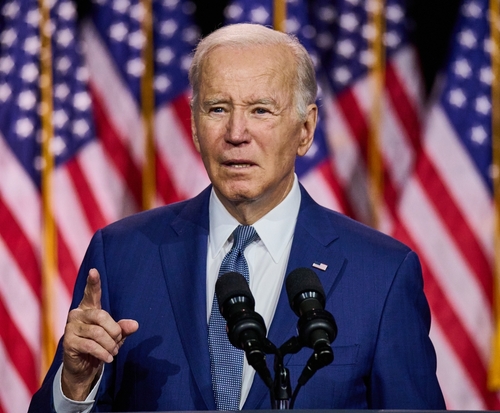
In a moment of unscripted candor, President Joe Biden referred to Chinese leader Xi Jinping as a “dictator” during a press conference following high-stakes talks in San Francisco. This remark, which deviated from the diplomatic tone typically maintained in international relations, prompted a visible reaction from U.S. Secretary of State Antony Blinken, who was observed shaking his head in apparent disapproval.
The summit, which spanned four hours, was the product of extensive diplomatic groundwork and was intended to be a carefully managed engagement between the leaders of the world’s two largest economies. The meeting marked the first in-person encounter between Biden and Xi in over a year and was initially hailed as a constructive step toward easing tensions on various issues.
OMG😂🤣😂🤣😂🤣😂🤣
Look at Blinkin’s reaction after Biden calls Xi a dictator.
Blinkin is going to have a nervous breakdown. Babysitting Joe is obviously weighing on him BIGLY.
— Spitfire (@DogRightGirl) November 16, 2023
However, the president’s blunt characterization of Xi as a dictator seemed to undermine the delicate balance that had been achieved. Blinken, seated prominently in the front row, appeared to flinch at Biden’s words, an involuntary gesture that spoke volumes about the potential ramifications of such a forthright statement on the sensitive U.S.-China relationship.
Biden’s description of Xi came in response to a question about whether he still viewed the Chinese president as a dictator, a view he had previously expressed in June. Doubling down, Biden affirmed, “Look, he is. He’s a dictator in the sense that he’s a guy who runs a country that is a communist country that’s based on a form of government totally different than ours.”
.@SecBlinken has had a rough 24 hours…Joe Biden called Xi a dictator AGAIN 😂 pic.twitter.com/7mMn4F7fkP
— LEAHmemes (@itsreallyleah) November 16, 2023
Beijing was quick to denounce Biden’s comments as “irresponsible,” with a spokesperson for China’s foreign ministry expressing strong opposition and labeling it as political manipulation. The Chinese delegation, present in the United States for the Asia-Pacific Economic Cooperation summit, did not immediately respond, but hundreds of critics of Beijing took to the streets of San Francisco to protest, chanting “Free Tibet.”
The incident raises questions about the Biden administration’s approach to China and whether such frankness serves or hinders U.S. interests. While some may applaud the president’s willingness to speak plainly about the nature of China’s authoritarian regime, others, including evidently Secretary Blinken, may worry about the impact on diplomatic efforts and the potential escalation of tensions.
Xi Jinping’s grip on power in China is undeniable. Having secured a third term as president through a unanimous vote by China’s National People’s Congress—a body often criticized as a rubber-stamp parliament—Xi’s authority remains unchallenged within the country. His tenure has seen a consolidation of power that rivals that of Mao Zedong, with significant implications for policy-making, military control, and media freedoms.
The exchange at the press conference underscores the complexity of U.S.-China relations, where economic interdependence coexists with ideological divergence and geopolitical rivalry. It also highlights the challenges faced by U.S. diplomats who must navigate the fine line between asserting American values and maintaining a working relationship with a nation that is both a competitor and a necessary partner on global issues.
As the fallout from the press conference continues to unfold, it will be crucial to monitor how this moment of diplomatic dissonance influences the broader U.S.-China dialogue. The Biden administration must now reassess its communication strategy, ensuring that future engagements with China are conducted with a clear understanding of the messages being conveyed and the potential consequences they carry.












